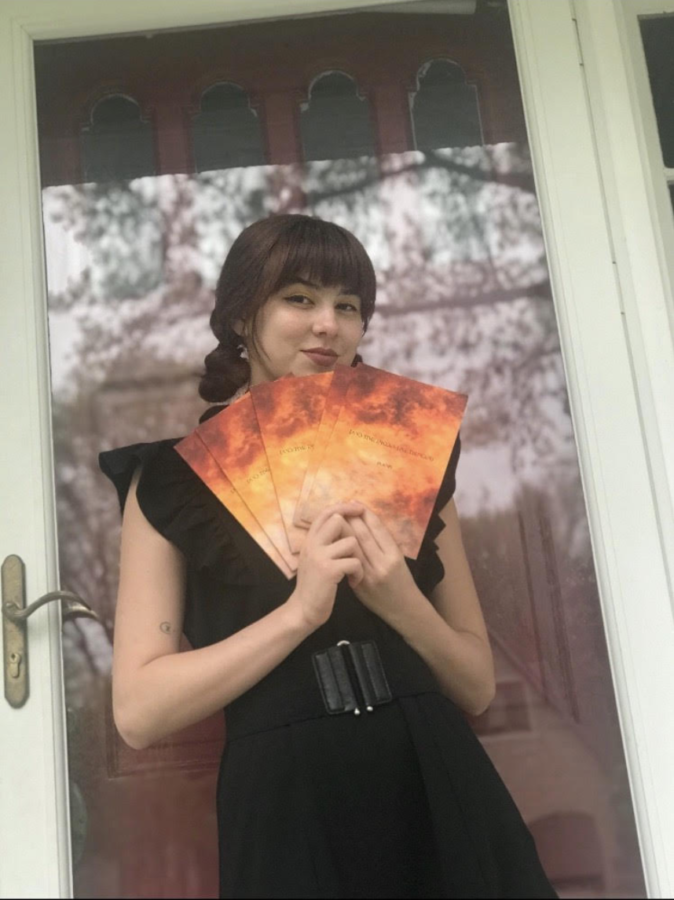Obies Write for Themselves, On Their Own Time
Courtesy of College third-year Zoë Luh
College third-year Zoë Luh introduces her first publication, a poetry collection titled [and time erodes like thunder].
Between classes, jobs, clubs, and maintaining a social life, writing a book during college might seem like an impossible feat. Even so, several College students and recent alumni rose to the challenge, drafting novels or publishing their writing during their time at Oberlin.
While it can be challenging to find time to write while managing coursework, campus life can also push students to try new creative projects outside of the classroom. For Zoë Luh, College third-year and author of [and time erodes like thunder], processing a negative experience at Oberlin inspired some of the poetry from her collection.
“I was really struggling with getting housing that fit my accommodation needs and I just kept being gaslighted by the school,” Luh said. “I talked about that frustration a little bit in my book, of feeling like there was no safe space for me.”
Oberlin’s general atmosphere can also contribute to writers’ inspiration. College fourth-year Sam Agnoli has felt the way political and public discourse on campus has entered his work.
“One of the last screenplays I wrote was about the crisis around oil companies, and that was an interesting parallel with the Gibson’s situation,” Agnoli said. “I think Oberlin students are really great at identifying issues in the world, and I was really interested in the tensions arising and what it means for students to engage with such topics.”
Students who want to work independently have to battle between prioritizing school work and their personal projects. Agnoli wrote the novella Awakened Tonight before he came to Oberlin. During his time here, Agnoli has completed multiple screenplays and is currently working on a new book, amongst other personal writing projects. Yet, even having several finished products under his belt, Agnoli still struggles to balance his independent work with his studies.
“It really was with the coronavirus that I got the chance to develop the book more. But since school started, it’s a lot harder to find time,” he said. “Pretty much on the weekends, sometimes I’ll get an hour or two here and there … but it’s a lot slower during class.”
The process of taking on a project completely independently, outside the structure of homework and deadlines, can seem harrowing at best and insurmountable at worst. Paris Gravley, OC ’15, who published poems “Everyone I Love at a Gas Station in Utah” and “Lifted the Ark High Above the Earth” in the plain china undergraduate writing anthology, offered student writers a few words of advice.
“I would reflect on what motivates you to write,” Gravley said. “Are you someone who needs structure, e.g. a morning writing routine? Are you someone who needs to know someone will read whatever you’re working on? Once you know what motivates you to write, then it’s much easier to manufacture that environment.”
The emotional and practical intensity of student-life can both fuel and thwart creative work. But regardless of the challenges, Obies have always found ways to prioritize the things they care about most.










